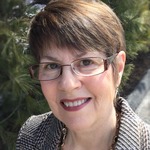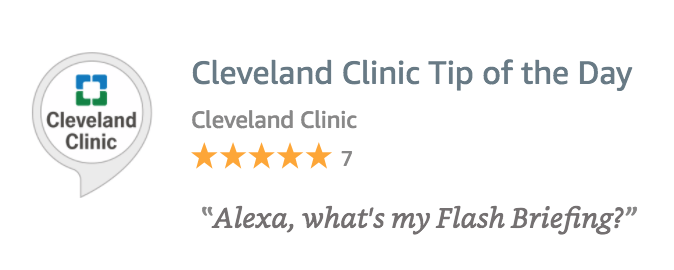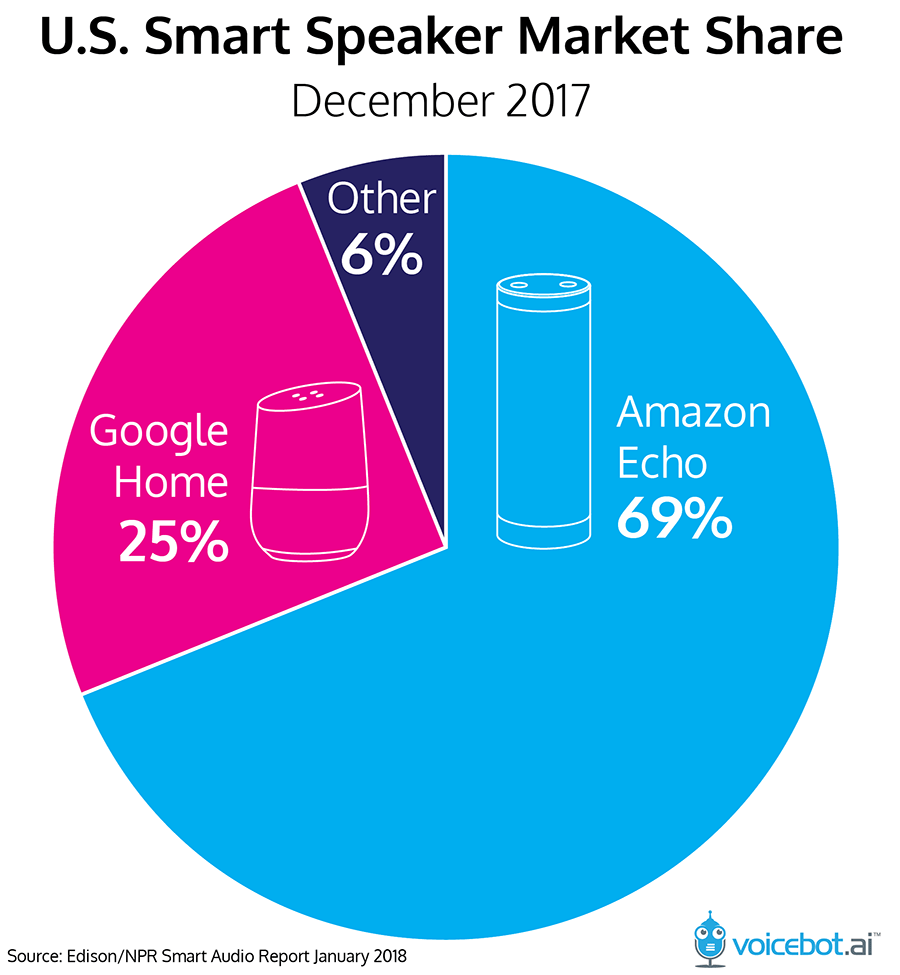Alexa, What Are the Early Adopters Up To?
// By Jane Weber Brubaker //
 The market for voice-controlled smart speakers is hot. The percentage of U.S. Wi-Fi connected households with devices like Amazon Echo and Google Home was up to 12.1 percent as of the end of November, after Black Friday and Cyber Monday, comScore reported. If that doesn’t get your attention, consider the growth rate between June (8.1 percent of U.S. households) and November: a staggering 49 percent.
The market for voice-controlled smart speakers is hot. The percentage of U.S. Wi-Fi connected households with devices like Amazon Echo and Google Home was up to 12.1 percent as of the end of November, after Black Friday and Cyber Monday, comScore reported. If that doesn’t get your attention, consider the growth rate between June (8.1 percent of U.S. households) and November: a staggering 49 percent.
Healthcare innovators are testing the waters with these popular consumer devices and the digital voice assistants like Amazon’s Alexa that go with them. As they explore the possibilities, they are keeping well within the bounds of potential privacy issues. “You can’t do anything that would have any sort of protected [health] information [PHI] in it because Alexa just doesn’t have security for that sort of one-to-one communications,” says Emily Kagan Trenchard, vice president, digital and innovation strategy at Northwell Health.
Cleveland Clinic concurs with the security challenges of a consumer device not specifically designed with PHI or HIPAA in mind. “From a healthcare standpoint, we can’t do online scheduling, for example, if we can’t confirm you have a secure system, and if we can’t confirm the person who’s talking is the patient,” says Matt Bakaitis, director of digital marketing. “That rules out a lot of things we would love to do with the technology, but the technology’s just not there yet.”
So what can you do with Alexa? Both Northwell Health and Cleveland Clinic worked through the challenges and developed solutions to engage with consumers using this new medium. Continue reading to look over their shoulders to see what your organization needs to know.
Northwell Health’s R&D Fridays give digital team members a chance to explore their interests and suggest new projects. “We had two folks on our team, a developer and a UX designer who were both super interested in Alexa and what conversational interfaces might be like,” says Kagan Trenchard. The team decided upfront to steer clear of anything that would use protected health information, or offer medical advice.
“We wanted something that was pretty straightforward, that we would be giving information that could be easily understood, and that could be asked for with one sentence,” Kagan Trenchard says.
Alexa Skill Development More Complex Than Expected
The team focused on developing a “skill” (Amazon’s name for an Alexa application) to provide wait times for emergency rooms and urgent care clinics. This feature has been available on Northwell Health’s website for several years, and there was an API ready to go. The assumption was that it would be an easy starting point. “What we thought was going to be very, very simple actually proved to be quite complex,” Kagan Trenchard says.
The skill has to be taught all the ways people ask for information. For example, these are different ways consumers might phrase a question:
Alexa, ask Northwell what’s the wait time at …
Alexa, ask Northwell to find the wait time at …
Alexa, ask Northwell to tell me the wait time at …
The names of locations and how consumers refer to them add to the complexity. “We have a number of hospitals that all start with ‘Long Island Jewish’ [such as Long Island Jewish Medical Center], so we had to build in the conditions for that,” Kagan Trenchard says.
The goal is to achieve 90 percent accuracy. “We can see the utterances when people speak to the skill and where it fails or succeeds,” says Kagan Trenchard. “We can then take a look at the logs and adjust from there.”
The skill, launched in October, is called Northwell Health. It can be enabled via voice by saying, “Alexa, enable Northwell Health,” or by selecting the skill in the Alexa app on a mobile device. Here is a typical question and the resulting answer:
Question: “Alexa, ask Northwell what is the wait time at Lenox Hill Hospital.”
Answer: “The wait time for the emergency department at Lenox Hill Hospital is 10 minutes. Lenox Hill Hospital is located at 100 East 77th Street in New York, New York.”
As of January, almost 250 individuals had used the Northwell Health skill and asked Alexa for wait times 1,000 times.
Flash Briefings — An Easy On-Ramp
Cleveland Clinic took a different approach, launching an Alexa skill that is relatively easy to implement — the Flash Briefing. This feature allows users to choose short-format news briefings that match their interests, and stack them into a news feed that plays sequentially. Users can customize the order of content, but can’t skip from one Flash Briefing to the next. Alexa plays a user’s Flash Briefing in its entirety for all Flash Briefings the user has enabled.
As of early February, clicking “Get more Flash Briefing content” from Alexa settings yields 4,073 results sorted into categories such as Popular, Tech, Sports, Business, and Recommended.
Alexa Personas
Cleveland Clinic thought through its strategy before creating new content and going live with its Tip of the Day Flash Briefing: Who was the audience likely to be? What kind of content would they enjoy? How short or long should the Flash Briefing be? What type of voice would appeal to the audience?
“We approached it from the perspective of a millennial digital-age audience in that you may have 5 or 10 things in your flash briefing, and how do you capture a person’s attention when you have to fight for space in that Flash Briefing?” says Bakaitis. “We decided to go with something that was very short, which means that people also don’t tend to be annoyed if they don’t like the content.”

Here’s an example of the Cleveland Clinic Tip of the Day — a youthful female voice asks:
“Which is contagious? Your cankersore or coldsore? Cankersores appear inside your mouth. Coldsores happen outside. Cleveland Clinic experts say, while cankersores aren’t contagious, coldsores involve a very contagious virus. You risk passing coldsores along when you kiss someone, drink out of the same container, or share silverware with other people. So know the difference. That’s all from your flash briefing.”
The Tip of the Day launched in November. To date 1,850 unique customers have enabled it, and listened to the flash briefing 16,500 times. Cleveland Clinic is continuing to explore opportunities beyond the Flash Briefing. “There will be a next app for sure,” Bakaitis says. “That’s a guarantee.”
Market Share for Smart Speakers Evolving; Alexa Still #1
Currently, Amazon has 69 percent of the market for smart speakers, but Google Home is gaining ground with a 25 percent share, and Apple HomePod entered the market, with a release date of February 9.

Northwell Health and Cleveland Clinic opted to focus on Alexa for their first forays into conversational technology because of its strong market share and relative ease of implementation. But both organizations are also exploring Google Home. “We definitely would like to have [Northwell Health] be available as a skill on Google Home as well,” says Kagan Trenchard.
Cleveland Clinic’s team attended a Google IO conference early in its research process. “We got to see how Google viewed voice and heard from a lot of their key product managers and engineers about what they were doing next with Home,” says Bakaitis. One big difference is that Google Home does not currently have a feature like Alexa’s Flash Briefing. Developers build custom standalone “actions,” Google’s term for digital voice assistant applications. “Building for Google Home takes more work and infrastructure than Alexa, and that’s why we thought Alexa was a great place to start,” Bakaitis says.
Jane Weber Brubaker is executive editor of Plain-English Health Care, a division of Plain-English Media. She directs editorial content for eHealthcare Strategy & Trends and Strategic Health Care Marketing, and is past chair of the eHealthcare Leadership Awards. Email her at jane@plainenglishmedia.com.

